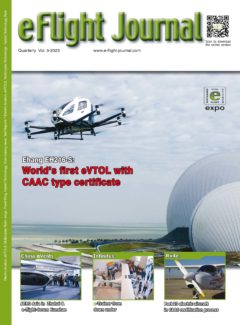On 13 June 2023 the Italian airplane manufacturer Tecnam announced to terminate the P-Volt electric commuter airplane project although they will continue research activities to explore new emerging technologies and will be ready to bring the P-Volt back into the type certification arena as soon as technology evolution allows.

the rendering image of P-Volt design
Tecnam has concluded that the time for P-Volt is not yet ripe after three years of intensive studies covering the entire lifecycle of an all-electric aircraft. Tecnam attributes the main reason to, perhaps undoubtedly, the limit of battery technology. Tecnam states that “The proliferation of aircraft with “new” batteries would lead to unrealistic mission profiles that would quickly degrade after a few weeks of operation. Taking into account the most optimistic projections of slow charge cycles and the possible limitation of the maximum charge level per cycle, the real storage capacity would fall below 170Wh/kg, and only a few hundred flights would drive operators to replace the entire storage unit, with a dramatic increase in direct operating costs due to the reserves for battery replacement prices.” Therefore, Tecnam believes that these key factors cannot define a new aircraft development as “viable” with a target entry into service by 2026-2028 and that an aircraft with a battery pack at the end of its life would not be the best product for the market, but certainly the worst in terms of Net Present Value (NPV).
Tecnam is neither a new player in general aviation nor in electric aviation.P-Volt can be traced as far back as in 2018 when Tecnam, Rolls Royce and Rotax jointly developed the H3PS hybrid electric demonstrator airplane based on the Tecnam P2010 four-seater airplane. With dozens of EASA and FAA certifications, Tecnam is the most active General Aviation manufacturer in the world with the highest number of new type certifications in recent years. So their decision should be taken seriously. Though it’s sad to see the termination of an electric aircraft project, it’s brave and smart to face the problem and stop loss on time. We need to accept the fact that the business model and market entry point of full electric aircraft for now is very tricky due to battery restraint which, as Tecnam explained in the press release, will heavily affect the profitability and viability of the operation. Perhaps it’s a good time to read again Tecnam’s CTO Fabio Russo’s analysis last year of Eviation’s performance. Electric aircraft development is a steep and long slope so it’s natural and maybe necessary to change to a lower gear in the climb. The important thing when climbing a slope perhaps is not how fast we go, but to keep moving. As long as we are climbing, no matter how slow we are moving, we will reach the peak.
Tecnam’s CTO Fabio Russo’s analysis last year of Eviation’s performance. It is a very good read for anyone interested in electric airplane design and performance speculation: https://www.linkedin.com/posts/fabio-russo-51375a33_eviation-alice-performances-analysis-ugcPost-6939894153900134401-_Ayo/
